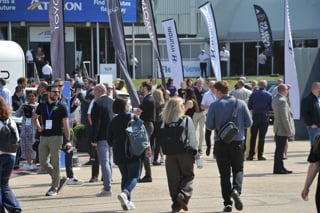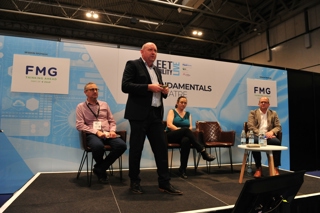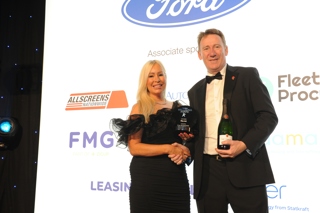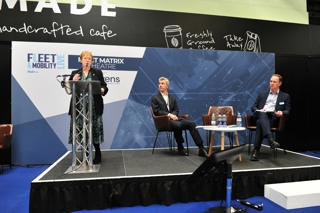Monica Guise: EVs require driver buy in
A carbon-cutting agenda coupled with a close working partnership with a research team is helping the University of Birmingham’s fleet become greener.
Transport service manager Monica Guise is responsible for its 126-vehicle fleet.
Working with the University’s fuel cell group, she’s also been able to bring electric and hybrid vehicles to the campus.
“The EVs do provide challenges,” explained Guise.
“But they also require buy-in from the drivers and that includes helping them to understand how they work.”
Nigel Underdown: Monitoring is 'crucial'
Nigel Underdown, head of transport advice at the Energy Saving Trust, told fleets that ordering low carbon cars was only part of the green equation.
“It’s still staggering to hear people say what a green fleet they’ve got when all they’re
highlighting is the CO2 of their vehicles,” said Underdown.
Instead, he stressed how measuring and monitoring how many miles per gallon drivers achieve is what is crucial.
“Metal is easy, but trying to coax and cajole drivers to do something different is quite hard,” he said.
Kevin Kendall: Hydrogen can fill gap
The University of Birmingham is developing hydrogen fuel cell technology that could be used by fleets within 10 years.
Professor Kevin Kendall runs the institution's fuel cell group.
He said: “We believe the vehicle you want for your fleet must do 200 miles.
"But present battery vehicles can’t quite do that and this is where a hydrogen vehicle can potentially fill the gap.”
Kendall concluded: “I think hydrogen is a very interesting fuel, because fleet operators want longer range, more rapid refuelling and better flexibility.”
Paul Chater: Mileage claims cut by 28%
A mileage management system has helped a fleet cut business mileage claims by more than a quarter.
Paul Chater, sales director at Vertivia, said its internet-based software helped Heinz cut claims by 28% and reduced its pence per mile rate by 10%.
While it slashed Heinz's fuel bill by hundreds of thousands of pounds, accurate mileage capture has also made CO2 emissions calculations possible.
Consequently, average emissions for its 410 company and privately- owned vehicles have been cut from 168g/km to 150g/km.


















Login to comment
Comments
No comments have been made yet.